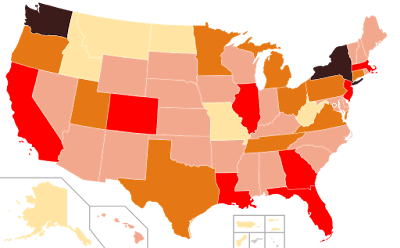Coronavirus (COVID-19): If you are a skeptic, Part 1

Do you think that the economic price the United States is paying for closing businesses and limiting everyday activity to prevent the spread of the novel coronavirus is too high? If you do, consider this: How many lives have we really lost in the U.S. due to COVID-19? Some might argue that although at least 180,000 American lives have been lost to COVID-19 (as of August 2020), many more lives have been saved by reductions in commuting and travel (lower accident rates), reduced exposure to flu, and other changes in behavior that have accompanied lockdowns and working at home. To understand the true effect of COVID-19 on American loss of life, it is helpful to look at the excess mortality rate in 2020.... How many people have died in 2020 above and beyond what is considered normal? Through August of 2020, the number of excess deaths in the U.S. is about 213,000 people (adjusted for increases in population year-to-year). Put simply -- In America, we have lost...





